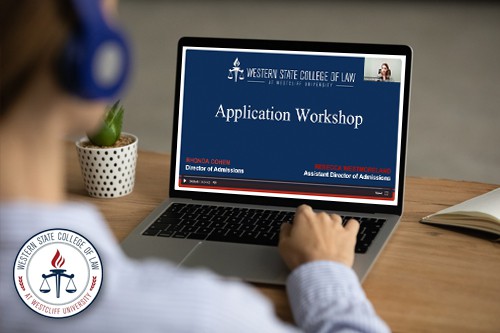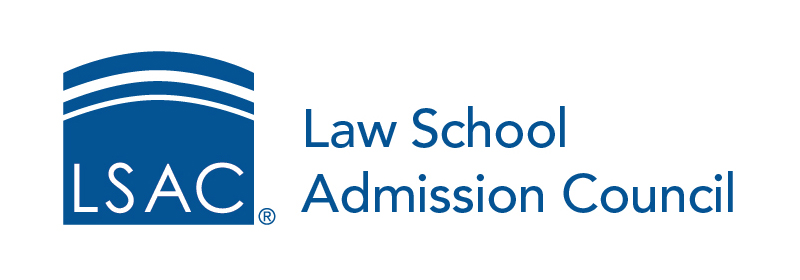Interested in applying to California law school? Intimidated by the application process?
Western State is here to help.
Our recent webinar “The Admission Application Process,” led by Rhonda Cohen, director of admissions and Rebecca Westmoreland, admissions coordinator, discusses what the application process looks like, provides guidelines for handling different parts of the application and shares insider tips for applying to Western State for the 2022/2023 year.
Check out the recap below:
Application Dates: These are available on the website and updated regularly to reflect the upcoming admission deadlines. Key dates for applying to the Spring 2022 and Fall 2023 classes include:
- September 1: Spring (January) and Fall (August) admission process opens annually on www.LSAC.org
- December 1: Spring application process closes. The last LSAT or GRE score accepted is from November.
- July 15: Fall application process closes. The last LSAT or GRE score accepted is from June.
- Cost to apply: Application costs are set by each individual law school. These can range anywhere from $0 to upwards of $85. At Western State, we have removed application fees for the Spring 2022 and Fall 2023 classes.
- LSAC.org: All interested applicants need to create a profile on the Law School Admission Council (LSAC) website. This serves as a central hub that allows interested individuals to submit an electronic application directly to Western State.
- Components of the application: Understanding the application and what to include is imperative since it will be reviewed by the admissions committee. There are several parts to an application – some are required, and some are optional. Below are a few details and insights from the admissions team on what this entails and when or how to leverage them to strengthen your application:
- Credential Assembly Services (CAS) report: This report is managed by LSAC and includes college transcripts, test scores (LSAT or GRE), LSAT writing sample (if relevant) and a minimum of two letters of recommendation. There is a fee to compile this information through LSAC, however, once created, can be used for any application. This section is required and needs to be complete before submitting.
- Personal statement: Some law schools provide a prompt that all prospective students must respond to in the application process. At Western State, we encourage applicants to choose the topic they want to focus on and encourage them to use the open-ended statement to dive deeper into showcasing and answering who you are and what drove your interest in law school. This can be thought of as what you would share if you participated in a one-on-one interview with a law professor and should focus on details that are not easily discernible from a transcript or resume. In addition to including strong content, it will also be evaluated on writing and grammar as those are important skills for law school.
- Resume: A resume is optional, however at Western State we believe this can be an asset during the application process. A resume can showcase your work experience and specific skills that would serve you well during law school in California, including leadership, work ethic, etc.
- Diversity statement: This is also optional, yet it provides another avenue for applicants to share more about who they are. Submitting a diversity statement allows applicants who are accepted to be considered for a diversity scholarship at Western State. In 2021, Western State was proud to award over $1.3M in diversity scholarships.
- Addenda: This section of the application process is an opportunity for students to provide additional information to explain something on their transcript, resume, etc. It is optional, unless an applicant has selected that they have a criminal record and, in that circumstance, it is required. In an addendum, we recommend being short, factual and to the point. These are most often leveraged to provide details around lower grades or scores, gap years, etc.
- Letters of recommendation: Every applicant will need to submit a minimum of two (and up to three) letters of recommendation. This should include at least one academic reference, such as an undergrad instructor or professor that can speak to you as a student. In addition, we recommend including a professional contact, such as a boss from a job or internship. These contacts should be able to provide firsthand insights into your character and work ethic. Applicants should not include relatives for this section.
Putting your best foot forward is important during the law school application process. For more information, tune into the full webinar, download our “How to Apply Guide” or contact Rhonda Cohen at rcohen@wsulaw.edu.




